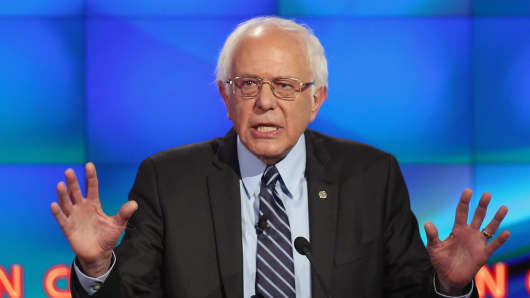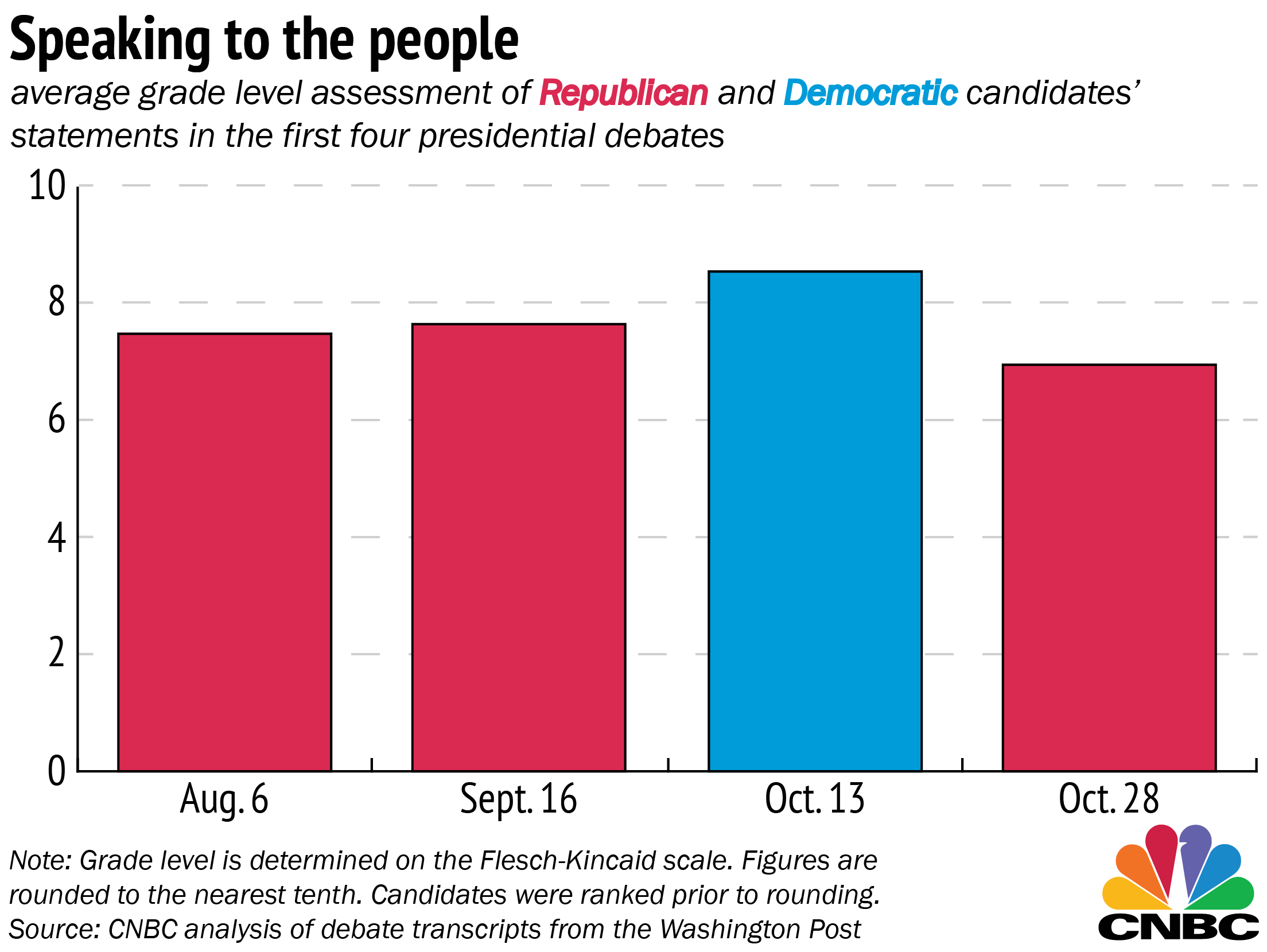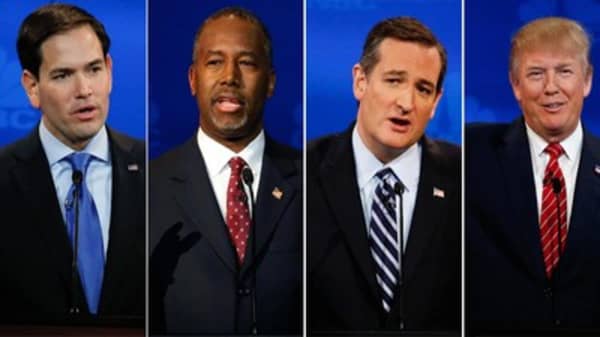You could be forgiven if you can't tell whether we're electing a U.S. president or a class president.
None of the presidential candidates — of either party — is speaking above a high school level, according to a Big Crunch analysis of statements made in the four debates that have been held.
After our analysis of the Republican presidential candidates, our avid readers were curious about the speech patterns on the other side of the aisle. We ran the same analysis on the Democrats' first debate — there's only been one, so our sample size was a little more limited.
Overall, the Dems spoke at a slightly higher grade level in their first debate than the Republicans overall. Still, no one used words or sentence structures that couldn't be easily understood by a high school freshman.










